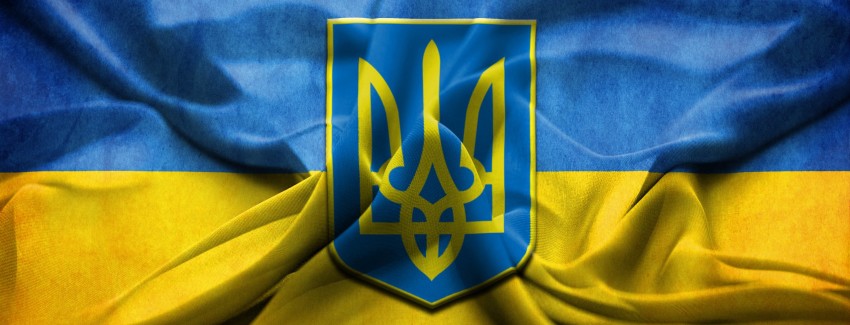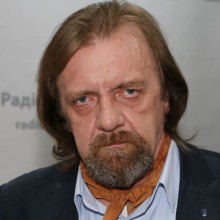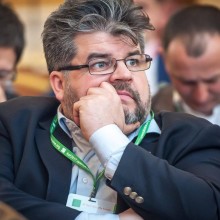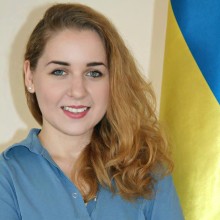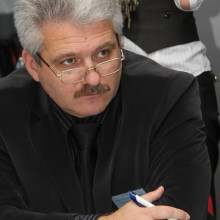Despite drastic deterioration of security environment, shameful loss of Crimea and territories in Donbas area, growing popular discontent concerning the fashion how the state is being managed, the main approaches of national leaders to shape Ukrainian defense and security policy remains surprisingly intact.
There may be twofold explanation to this striking phenomenon. First: the leaders and their advisers are poorly educated; they have very feeble ideas how a sovereign state ensures its defense and security and how the policy in this domain is correlated with broad popular support of the authority. Second: they are cynical enough to use this important sphere of state policy with the only aim – as an opportunity to expand their personal wealth by means of putting at stake the destiny of the nation, utilizing even such developments as coup d’état, foreign invasion and a civil war as a business opportunity.
It would be an exaggeration to argue that this phenomenon remains unnoticed by national expert community and rare patriotic politicians, which try to question the wisdom of the governmental policy, including the recent upgraded Ukraine`s NSS - 2015. Unfortunately, the lack of vision and knowledge prevents them to present a somewhat complex alternative vision of the ways how best to avoid a national disaster.
The present research is an attempt to bridge this gap, avoiding to jump to radical or unsupported conclusions. The main findings are the following:
1. Ukrainian nation really faces serious, even existential threats, but their origins and sources look like a bit striking: the nation`s political elite and the state`s bureaucracy, primarily its top and mid-level servicemen. To put it bluntly, Ukraine faces serious external threats, but its impalpable internal threats pose to be deadly.
2. The research argues that the national political elite comprises a group of oligarchs, which put under control huge post-soviet state`s assets in a questionable fashion from a legal standpoint and benefits from it immensely due to tax evasion schemes. These groups of political entrepreneurs did not establish corporate Ukrainian business, but rather an internal occupational regime. To safeguard this kind of business, they hired politicians with strikingly low moral standards and erected a political construction, which proved to be unsustainable with dwindled and exhausted resources.
3. What aggravates the situation is the lack of imagination of this ‘elite’ in terms how sustainable statehood is managed. Ukraine is a multi-ethnical and bilingual nation with twofold mindset – soviet-style patrimonial and western-style free market at a time in different regions. Thus, a post-soviet free Ukraine desperately needed and still needs a national idea, a concept, but the elite never bothered to grasp the problem and address it properly. It resulted in separatism and disloyalty of uniformed servicemen in certain regions en mass with rampant top-level corruption and usurpation of power serving as a trigger.
4. In a selfish pursuit for power by means of twisted democratic tools the political elite turned these mental split-lines into gaps, and now the nation faces grave consequences.
5. Unacceptably low moral standards of top-level politicians and state managers created serous challenged for viable statehood in Ukraine. The tools of democratic system are utilized to usurp the power and manipulate the mentality of the nation, in evil hands they brought the nation to frustration and disbelief that justice and freedom are achievable in Ukraine.
6. Though the nation`s well-being dramatically plummeted, the economy shambles and is kept afloat mainly due to IMF financial injections, the government denies a looming economic collapse and is in a hurry to syphon huge financial assets from national banking sector, proclaims de-industrialization as a reasonable politics and questionable integration with EU, portrayed publicly as a full-flesh accession and a panacea.
7. The leaders persistently continue to argue that Ukrainian friends in the West betrayed the nation with Budapest memorandum and put at risk the actual assistance due to sabotage of a reform agenda, which undermined the present political system of the state. The research views as a threat such a choice to put the country alone to face Russian aggression, as far as the state will almost surely not stand this.
8. The research recognizes Russian aggression as a threat to the nation, but argues that Ukrainian leaders have a different approach to this issue: they seriously believe in the option to find a non-transparent business-type solution to military aggression with the Kremlin, though hostilities should remain an important precondition for them to stay in the office. The nation remains to pay for this business-styled solution with its lives on a daily basis.
9. I argue, that Ukraine under present leaders and political elite faces no chances to remain a sovereign nation, political leaders needs to be replaced evolutionally though swiftly by means of democratic tools.
10. The country is viewed in mid-term perspective as a western-type nation with viable democratic political system, based on principles of good governance with advanced economy, capable to produce products with high added value, and pragmatic partnership in defense area with leading western nations.
The research met in Kiev a warm welcome among many top and mid-level officials, in business circles, the brass and high positioned intelligence officers, including retired ones. The findings were broadly distributed among main governmental institutions, including President`s office and NSDC of Ukraine, where it was met with caution, though no substantial or visible critique followed.
Alex KUROPIATNYKThe Maidan of Foreign AffairsAuthor of Ukrainian National Security Strategy (alternative vision)
